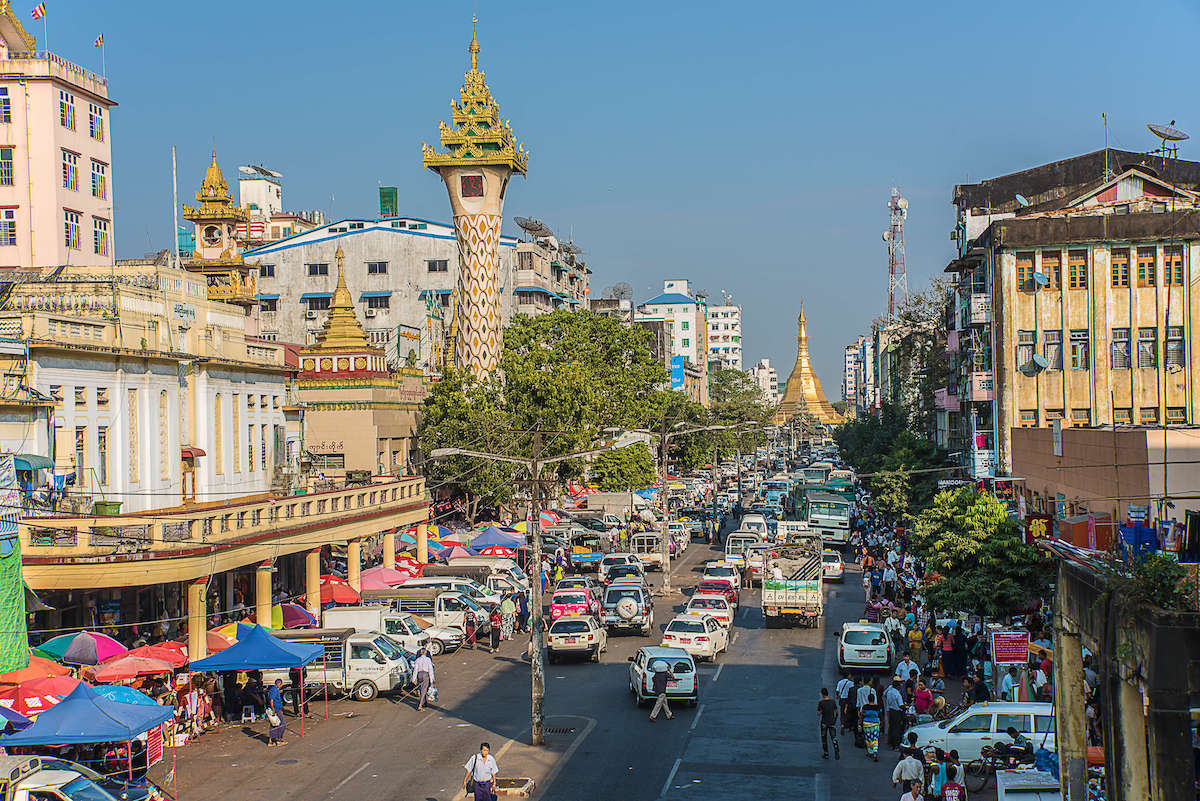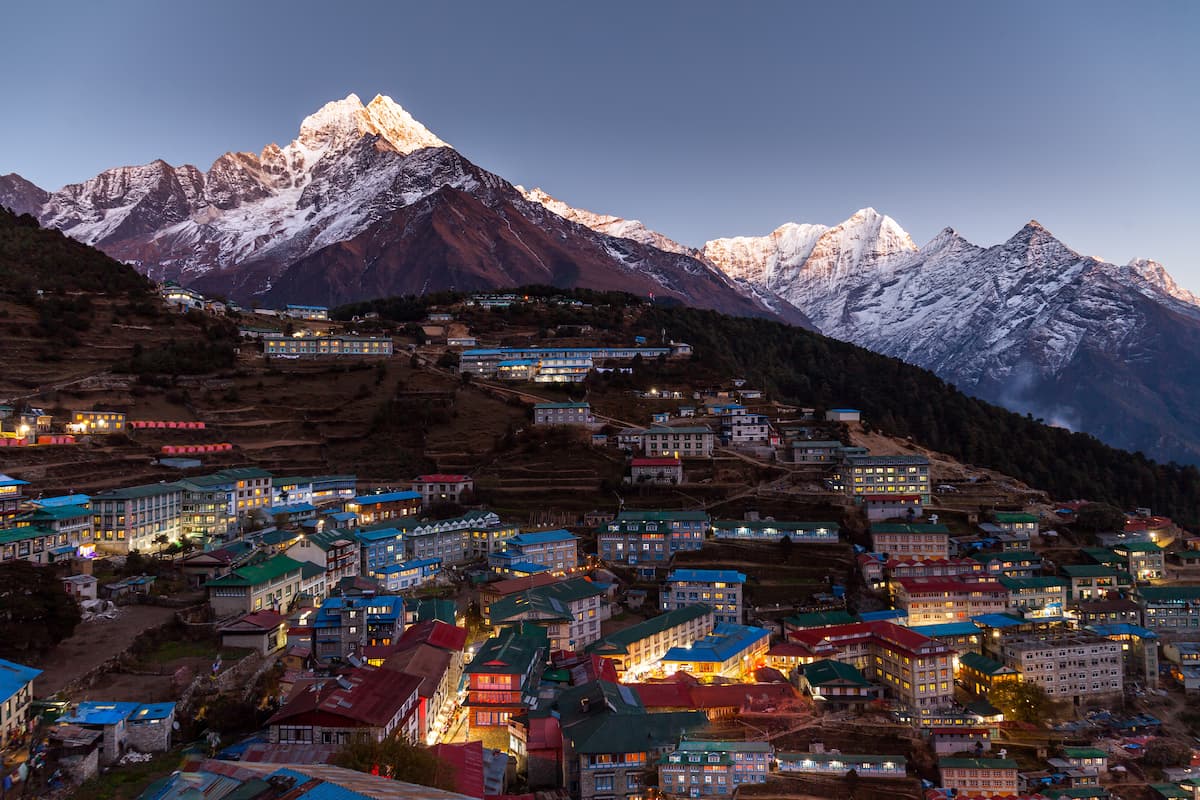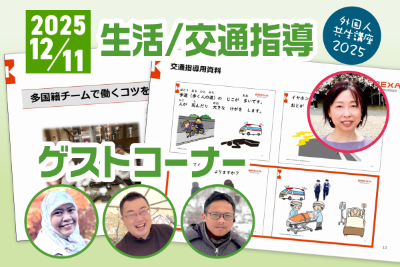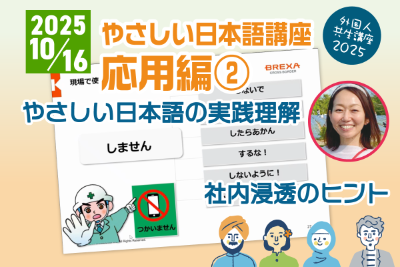- やさしい日本語
- ひらがなをつける
- Language
We provide multilingual content through machine translation. Translation accuracy is not 100%. About the multilingualization of the JAC website
- About JAC
- JAC Membership Information
- Specified Skilled Worker Acceptance
- Specified Skilled Worker Overview of the system
- 10 Mandatory Assistance for Foreigners
- Online individual consultation
- Seminar on Coexistence with Foreign Nationals
- Leading examples of host companies
- Case studies collection "Visionista"
- Foreigner's Voice
- Foreign Resident Acceptance Manual / Q&A
- Useful column "JAC Magazine"
- Acceptance support services
- Specified Skills Acceptance Support Service
- Skills improvement support
- Online Special Education
- Skill training
- Japanese Language Course
- Education and Training Support
- Subsidy system for obtaining qualifications
- Support for creating a comfortable workplace
- Temporary Return Support
- CCUS charge support
- Support system for promoting the accumulation of employment history
- Post-acceptance training
- Compensation system for Specified Skilled Worker (i)
- Daily life support
- Medical interpretation support
- Support for daily life problems
- freeJob matching
- The Specified Skills Evaluation Exam
- Home
- JAC Magazine
- Working with foreign workers
- What is the Nepalese national character like? Introducing their personality and communication tips!
- Home
- JAC Magazine
- Working with foreign workers
- What is the Nepalese national character like? Introducing their personality and communication tips!

What is the Nepalese national character like? Introducing their personality and communication tips!
I wrote the article!

(One company) Japan Association for Construction Human Resources
Chief of Research and Development Department / Administration Department / Public Relations Department
Motoko Kano
(Kano Motoko)
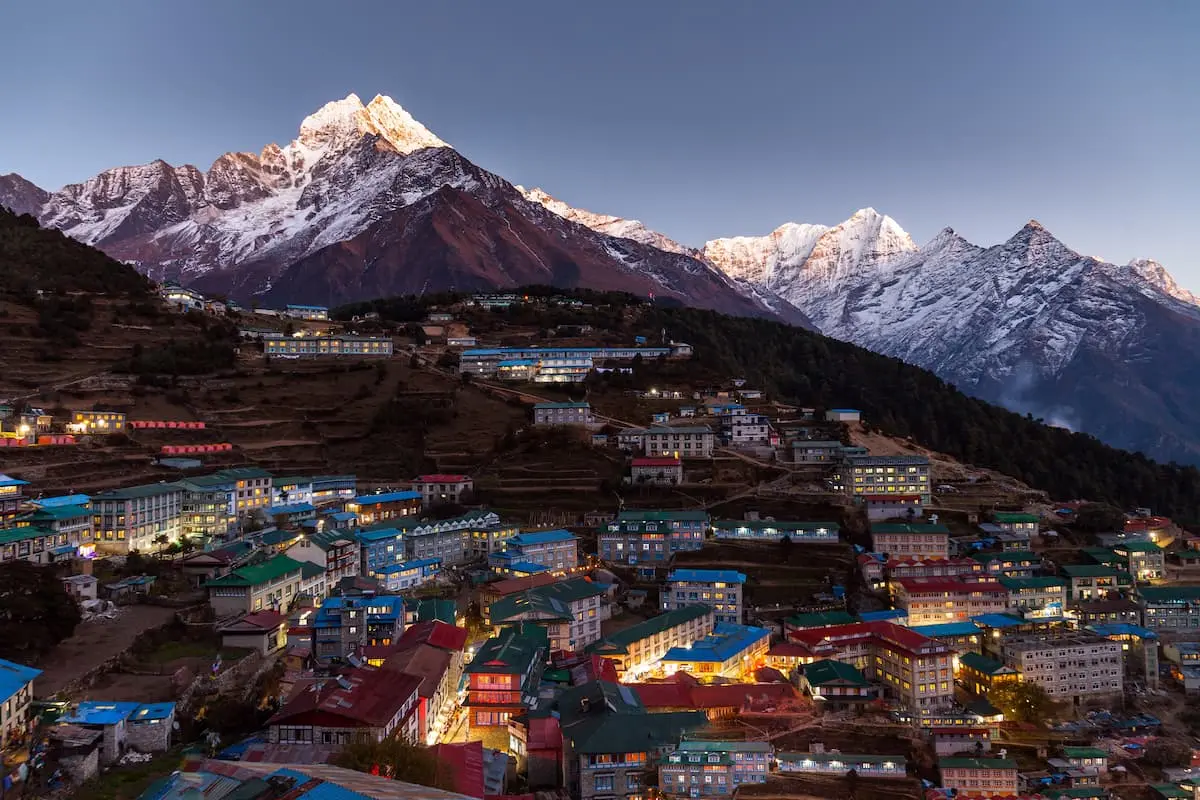
Hello, this is Kano from JAC (Japan Association for Construction Human Resources).
Nepal is a South Asian country located between China and India.
Many people probably think of India as the country that is home to the world's tallest mountain, Mount Everest.
This time, we will explain in detail about the national character of Nepal.
We will introduce each country's characteristics and communication tips, so please use this as a reference.
What kind of country is Nepal?
Nepal is a mountainous country located in the subtropics between India and China.
The capital and largest city of Nepal is Kathmandu.
Although the country has strong economic and cultural ties with India, it also maintains friendly relations with China due to its traditional policy of non-aligned neutrality.
Its area is approximately 147,000 km2, about 1.8 times the size of Hokkaido, and its population is approximately 30 million (as of 2023).
It is also a mountainous region with a series of mountains over 8,000m in height, including Mount Everest.
The climate is similar to Japan, with four distinct seasons.
The official languages are Nepali and English, and many people can speak English fluently, as education in the country begins in elementary school.
Also, since the word order of Nepali and Japanese is similar, Japanese is said to be an easy language to learn for Nepalese people.
Approximately 80% of the population is Hindu, 10% is Buddhism, and the rest is other religions.
Buddhists don't have any big festivals, but Hindus have their biggest festival around October or November in Japan.「ダサイン(Dasain)」 (The date of the festival changes each year according to the Hindu calendar.)
During this time, you may need support returning home temporarily.
In Nepal, there are fewer holidays than in Japan, with only Saturdays being holidays.
Although it is said that there are many hardworking people, the average annual income is about 420,000 yen.
Prices are high compared to the average annual income, and there are also cases of economic hardship.
Due to this economic background and the people's proficiency in English, Nepal is characterized by a large number of people who go abroad to work.
Approximately 13% of the population, or more than 4 million people, work outside Nepal.
What are the personalities and values of Nepalese people? Learn about their national character

As mentioned above, many Nepalese people are actively going abroad to work, and in recent years, an increasing number of people are choosing Japan as their work destination due to its good public safety.
Japanese and Nepali are easy to learn because they have similar word orders, so there are many Japanese language learning centers in Nepal and the learning environment is well-established.
They also value rules and regulations, and their lifestyle is similar to that of Japanese people, so it would be easy for them to adapt to life in Japan.
There is also a deep-rooted culture of valuing family and respecting the elderly, and the people are said to be extremely hardworking.
However, they can be a little loose with time, so if they have a work deadline, it's a good idea to support them by letting them know early.
In terms of religion, it is important to note that Hindus have taboos, such as not being able to eat beef or pork (or meat in general), or anything that has been put in someone's mouth.
We also introduce the national character and communication tips of Indonesia, the Philippines, Vietnam, and Myanmar.
Please feel free to use this as a reference.
What is the Thai national character? Introducing their personality and communication tips!
What is the national character of Myanmar? Introducing their personality and communication tips!
What is the Vietnamese national character? Introducing their personality and communication tips!
What is the Filipino national character? Introducing their personality and communication tips!
What is the Indonesian national character? Introducing their personality and communication tips!
How to work smoothly with staff from Nepal
It is said that Nepalese people have the image that jobs in Japan are "good working conditions," "you can earn an income without having to hold complicated qualifications," and "high paying."
In order to work smoothly with staff from Nepal, there are three things to keep in mind when communicating with them.
It's a good idea to share this within your company before you start working with your Nepalese staff.
1. Understand and share cultural differences
The first is to understand and share cultural differences.
As mentioned earlier, for example, Hindus generally do not eat beef or pork (or meat in general), and cannot eat anything that has been touched by other people, so you will need to be careful when inviting someone to a meal.
Some values also make drinking alcohol undesirable.
When choosing a restaurant to go to together, it's a good idea to check in advance whether they have dishes that you can eat and whether they use seasonings that contain ingredients derived from beef or pork.
In addition to this, there are other things to keep in mind, such as the fact that the left hand is considered unclean, so it is better to use the right hand when shaking hands or handing over something.
Dasain, a Hindu festival that takes place in Nepal over 15 days, is a family-oriented celebration.
There are periods when it is a national holiday, and schools and companies often have long holidays, so many people return to their families, just like during Obon and New Year's in Japan.
Make sure you know in advance how many days off you will need.
It is important to research these cultural differences and ensure that all staff are aware of them.
②Speak in easy-to-understand Japanese
The second is to use easy-to-understand Japanese.
This is not limited to staff from Nepal, but Japanese terminology, dialects, and abbreviations are very difficult, so it is best to avoid using them wherever possible.
You should be especially careful with Japanese-English expressions, which are unique to Japan and cannot be understood by foreigners.
For example, some Japanese English words include the following:
| 和製英語 | 英語 |
|---|---|
| ノートパソコン | ラップトップ |
| タッチパネル | タッチスクリーン |
| コンセント | アウトレット |
| ホチキス | ステープラー |
It is also said that Nepalese people reply "yes" immediately.
People may instinctively answer "yes" even if they have no intention of consenting, so we recommend avoiding questions that can be answered with "yes" as much as possible.
3) Don't scold in front of others
The third step is to pay attention to your teaching methods.
Nepalese people really dislike being scolded or told off loudly in front of multiple people.
When giving guidance, it is important to be considerate and call the person in question into a separate room alone to talk.
Summary: The Nepalese people are hardworking and quick to learn Japanese
Nepal is a country with four seasons and similar characteristics to Japan.
Since the official language is similar to Japanese, it is said that people learn Japanese quickly.
Also, since English education begins from a young age, many people are good at English.
It is not uncommon for people to go abroad to work, and in recent years an increasing number of Nepalese people are looking to work in Japan due to the country's good public safety, job content and good wages.
There are Specified Skills employment statuses for Nepalese people.
This is a status of residence that requires certain skills and Japanese language ability, so companies looking for immediate personnel should definitely consider this.
"Getting to Know Nepal" course for Japanese people living together with foreigners held!
JAC holds a "Lecture on Coexistence with Foreigners" with the aim of "Understanding how to work smoothly with foreign staff!"
The fifth lecture on coexistence with foreigners will be held on January 18, 2024, and will be titled "Lecture on Coexistence with Foreigners (Nepal)" (lecturer: Subedi Uddhav).
In addition to introducing Nepal's history, national character, and working style, the seminar also explained things to be aware of and things to keep in mind when actually employing Nepalese people.
Participating companies asked questions about the image of Nepalese people in Japan, the Nepalese lifestyle, and the procedures that Nepalese people need to go through to work in Japan.
Q: What is the image of Japan from the perspective of Nepalese and Nepalese?
→ Japan people are kind. The image is that women can receive the same salary as men.
Q: I would like to know about theダサイン(Dasain) period of time off.
→ many Nepalese people want to take a day off. I have about 1~2 days off.
Q: What kind of jobs do you think Nepalese people are suitable for?
→ is different for each person, but Nepalese in particular are quick to study and have a strong spirit of helping each other.
As a result, I feel that jobs that require mutual help and teamwork while learning are preferable as Nepalese.
Q: Do I need to join either Specified Skills or Technical Intern Training MWWF* when leaving Nepal?
→ Technical Intern Training Students, Specified Skills must complete the MWWF procedure when leaving Nepal.
*海外労働保険・海外労働者社会福祉基金(Migrant Worker's Welfare Fund) things. Procedures to be carried out on the Nepalese side.
You can view seminar videos, materials, answers to questions, etc. from "Missed Distribution and Materials for Foreigners' Symbiosis Course".
If you were unable to participate, please take a look.
Regarding the course, we have received the following impressions.
- I didn't know much about Nepal before, so I was able to get an overview. It was also good that the lecturer was from Nepal.
- The instructor explained things clearly and carefully, which gave me hope for Nepalese talent.
In addition to lectures on the coexistence of Nepalese people, we hold irregular lectures on Indonesia, the Philippines, Vietnam, Myanmar, and Thailand.
Seminar videos are also available for seminars that have ended.
If you're looking to accept Specified Skilled Worker from any of the countries listed above, be sure to check it out.
We will continue to hold useful seminars according to your needs!
[Online free course] It's hard to get along with foreign employees! What do we do??
If you are a company that is considering accepting Specified Skilled Worker in the construction industry, please feel free to contact JAC!
*This article is based on information as of February 2024.
The author of this article

(One company) Japan Association for Construction Human Resources
Chief of Research and Development Department / Administration Department / Public Relations Department
Motoko Kano
(Kano Motoko)
Born in Aichi Prefecture.
He is in charge of public relations, research and investigation, and is the person behind social media.
We update our social media accounts daily with the desire to make people fall in love with Japan, to spread the appeal of construction from Japan to the world, and to ensure that Japan's construction industry continues to be the industry of choice around the world.
He is also engaged in research into the feasibility of implementing skills evaluation exam in Asian countries, and is conducting interviews with local organizations in each country.
Related articles

What is the Japanese level of Specified Skilled Worker? Precautions and measures after acceptance

Things to know when working with Muslim employees in a Japanese company

What is the obligation to notify the employment status of foreigners? Foreign workers who must be notified and how to apply
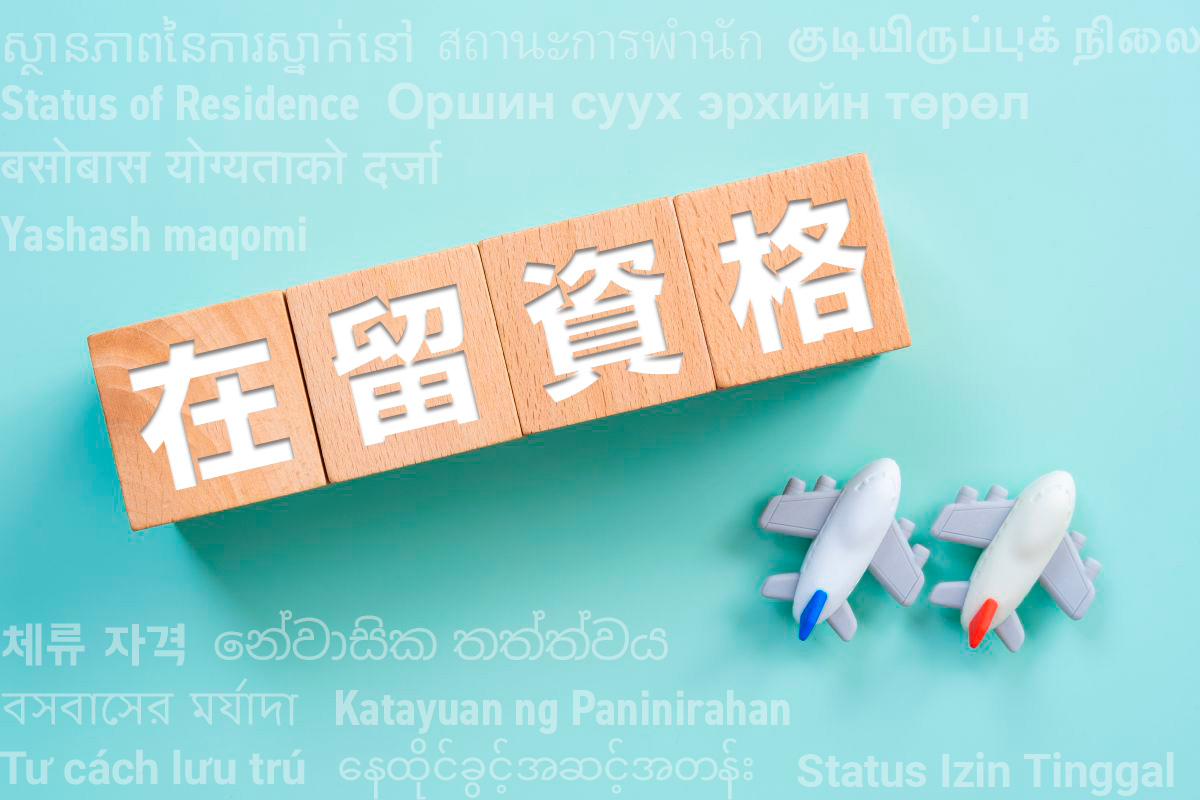
What is the status of residence that allows you to work? Explaining the types, how to obtain it, and more!







